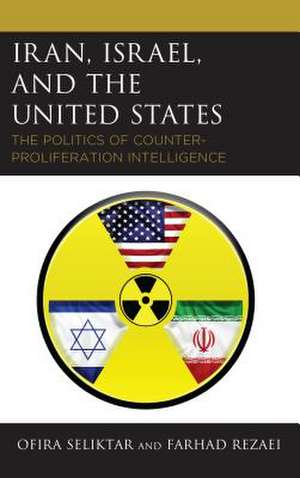Iran, Israel, and the United States
Autor Farhad Rezaeien Limba Engleză Hardback – 19 iun 2018
Preț: 716.27 lei
Preț vechi: 981.18 lei
-27% Nou
Puncte Express: 1074
Preț estimativ în valută:
137.06€ • 143.46$ • 114.08£
137.06€ • 143.46$ • 114.08£
Carte tipărită la comandă
Livrare economică 31 martie-14 aprilie
Preluare comenzi: 021 569.72.76
Specificații
ISBN-13: 9781498569750
ISBN-10: 1498569757
Pagini: 318
Dimensiuni: 152 x 229 x 20 mm
Greutate: 0.57 kg
Editura: Rowman & Littlefield
ISBN-10: 1498569757
Pagini: 318
Dimensiuni: 152 x 229 x 20 mm
Greutate: 0.57 kg
Editura: Rowman & Littlefield
Notă biografică
Ofira Seliktar is professor emerita of political science at Gratz College. Farhad Rezaei is a senior Iran analyst at the Center for Iranian Studies in Ankara, Turkey.
Descriere
This book analyzes the process of evaluating Iran's nuclear project and efforts to roll it back, resulting in the 2015 nuclear agreement. To highlight the technological problems and the politicization involved in the process, this study uses real-time comparison of developments in Iran and the perception of Israel in the United States.
